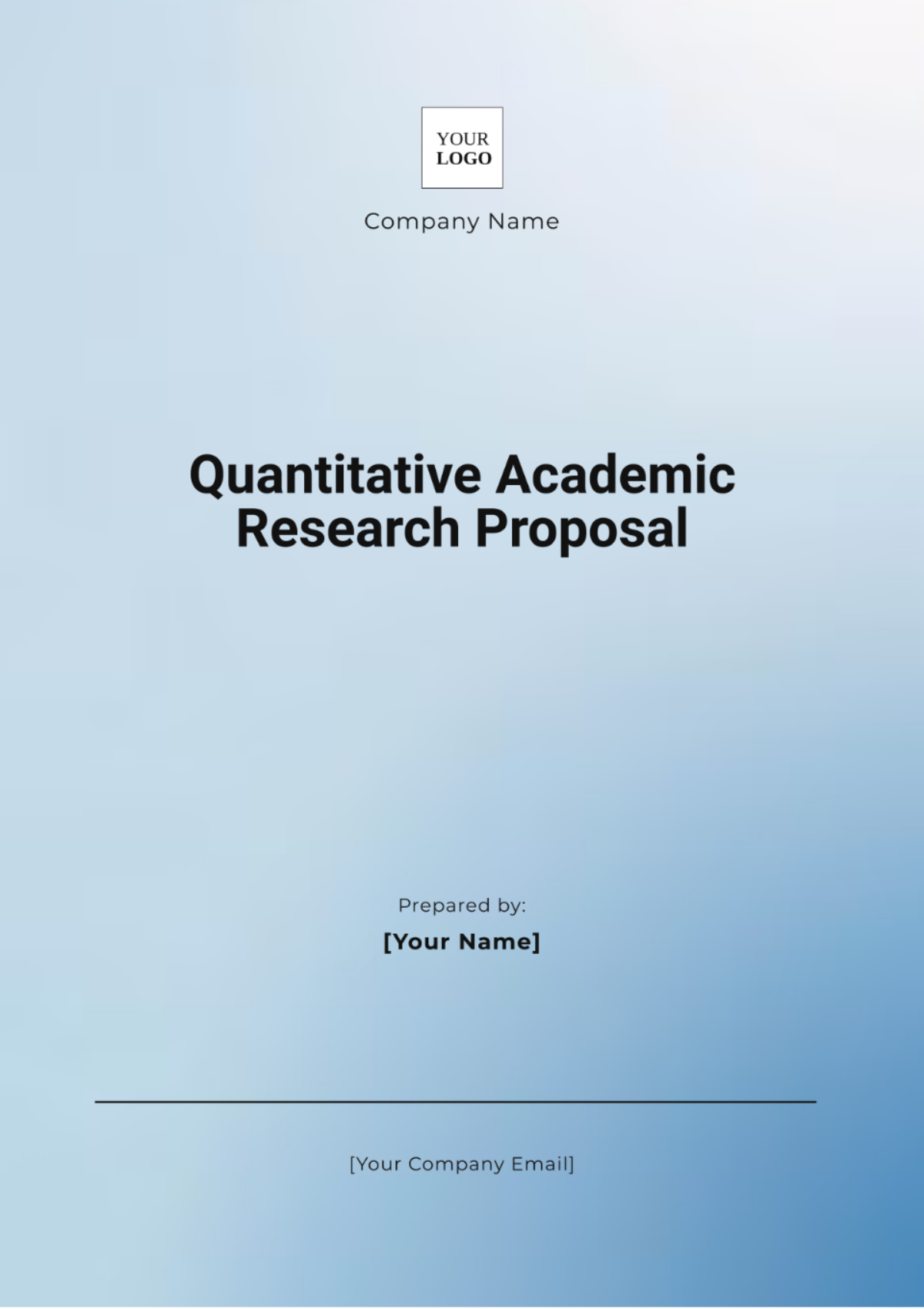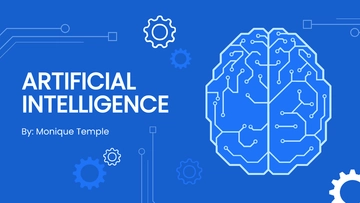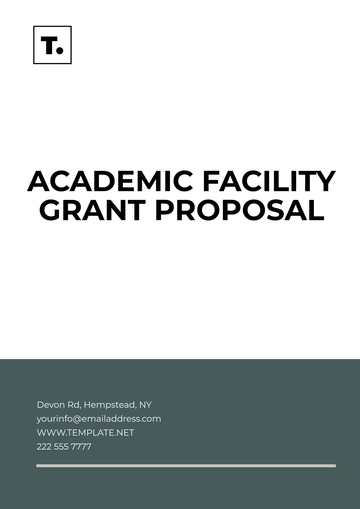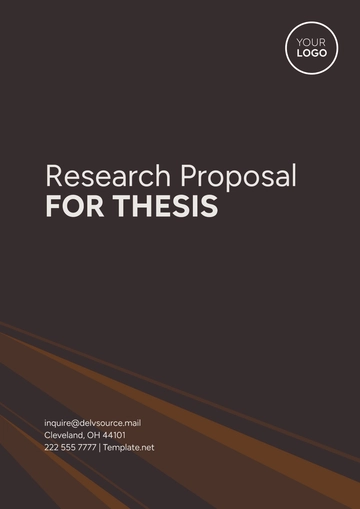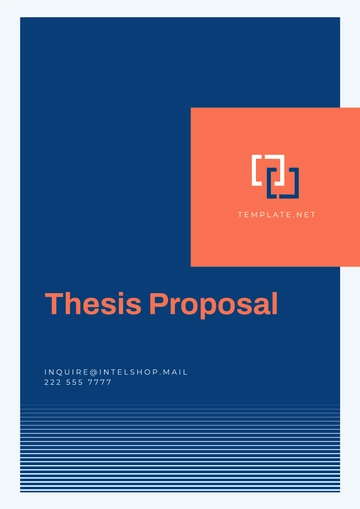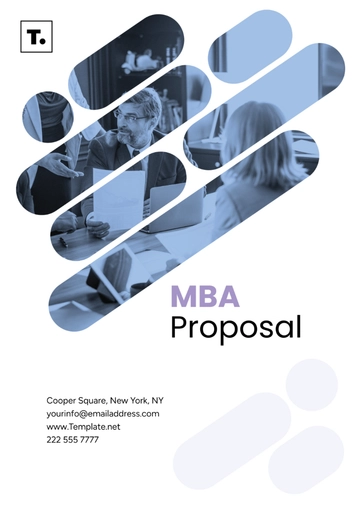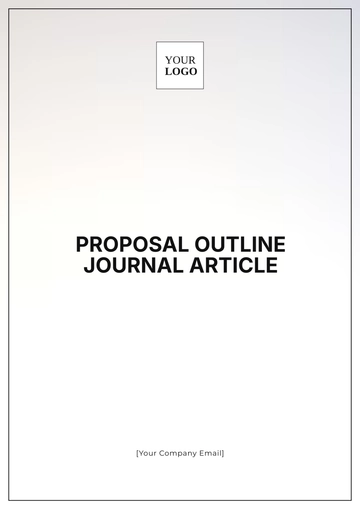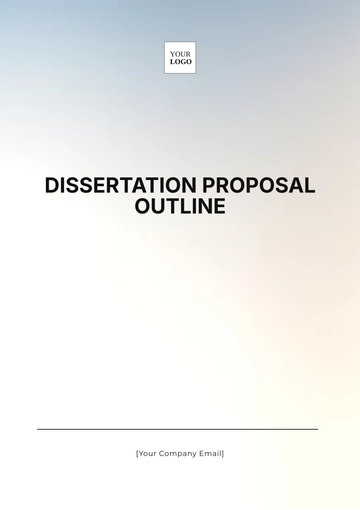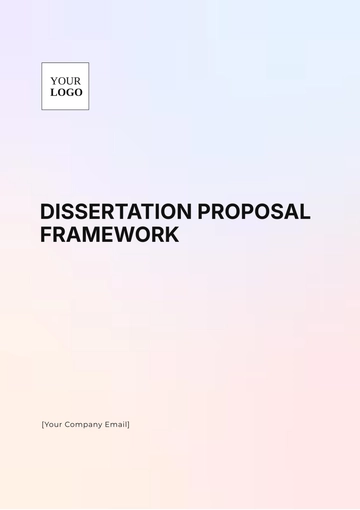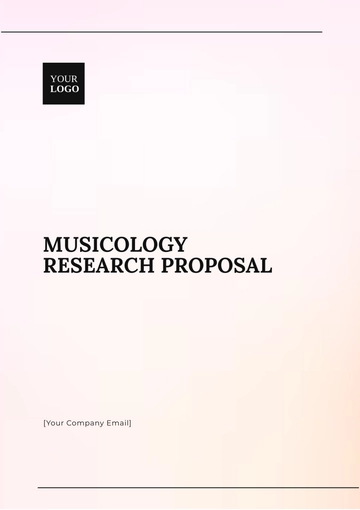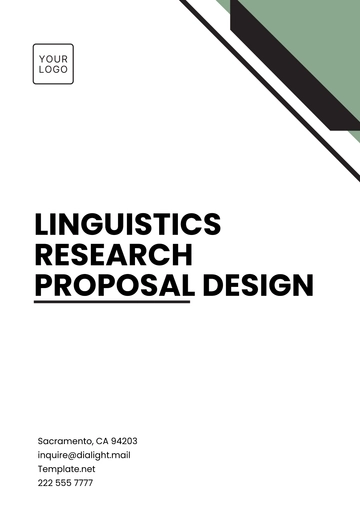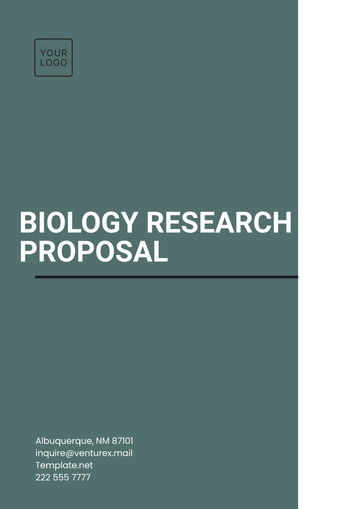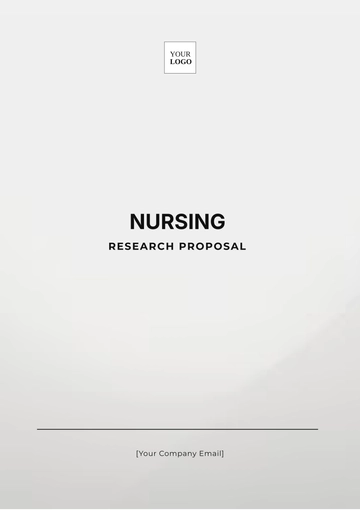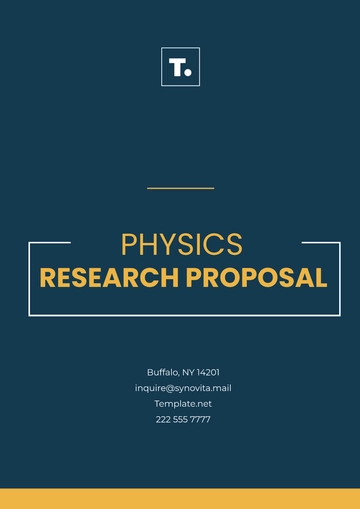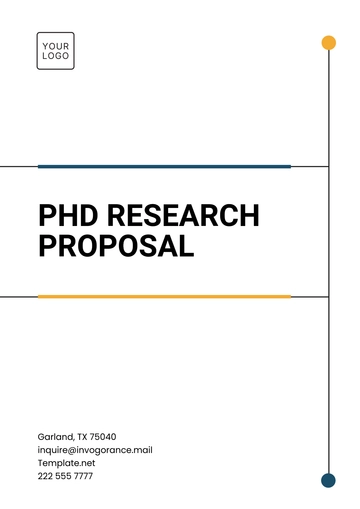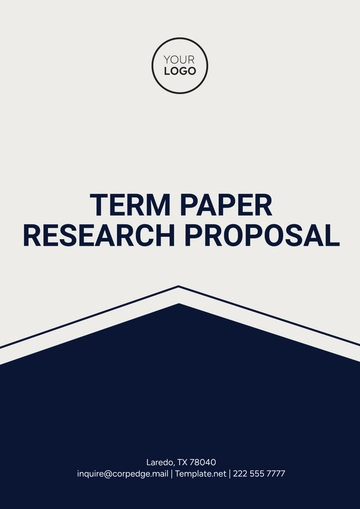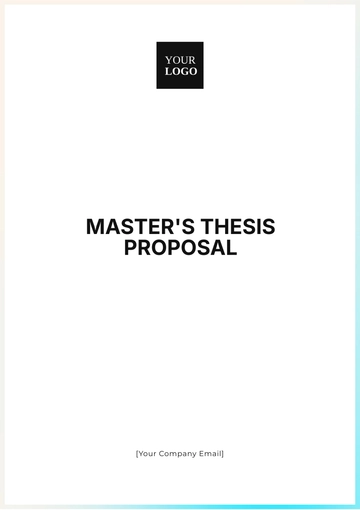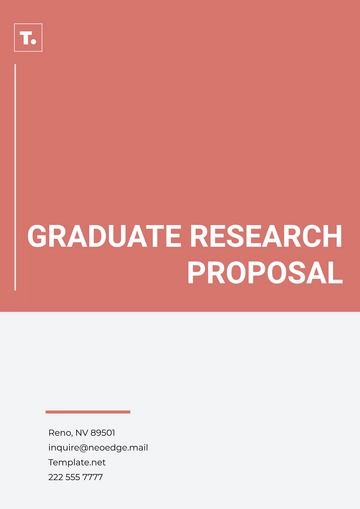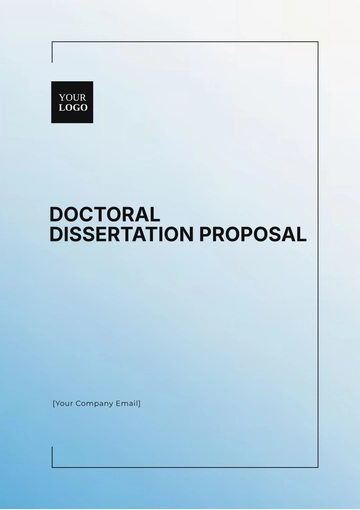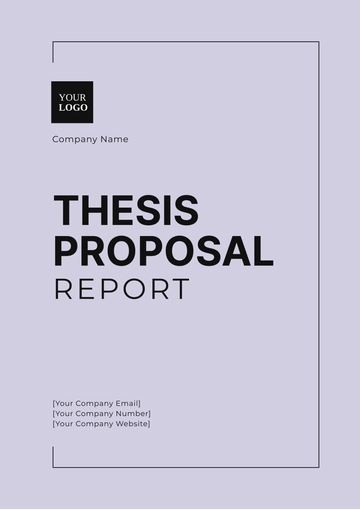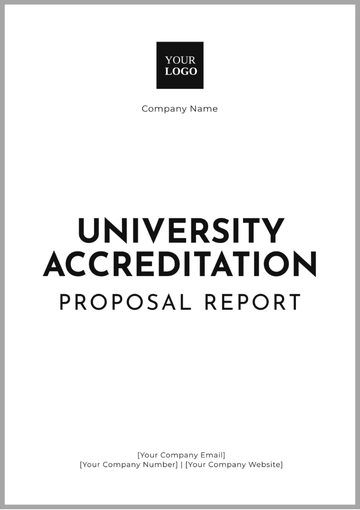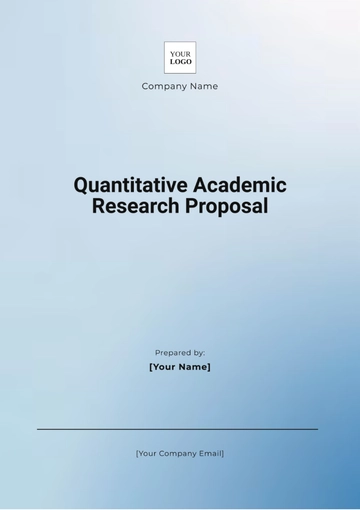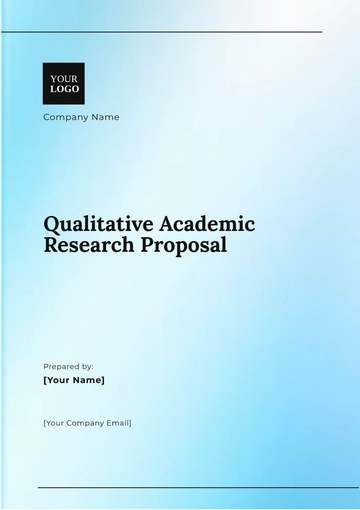Quantitative Academic Research Proposal
Prepared By: [YOUR NAME]
Affiliation: Department of Business Analytics
Company Name: [YOUR COMPANY NAME]
I. Abstract
This research proposal aims to investigate the impact of artificial intelligence (AI) on workplace productivity in tech companies. By employing quantitative methods, this study will collect and analyze data from various tech firms to determine how AI integration influences productivity metrics. The findings are expected to provide valuable insights for both academic and industry stakeholders.
II. Introduction
Research title: The Impact of AI on Workplace Productivity in Tech Companies
The advent of AI has revolutionized various industries, notably the tech sector, where it promises significant productivity enhancements. This research seeks to explore the extent to which AI applications have improved workplace productivity in tech companies since 2050. Understanding these impacts is crucial for businesses aiming to leverage AI technologies effectively.
III. Literature Review
Previous studies have highlighted the potential benefits of AI in optimizing business processes and increasing efficiency. However, there is a lack of empirical data quantifying these benefits in real-world settings, particularly within the tech industry. This research will build on existing literature by providing concrete data and analysis on AI’s impact on productivity.
IV. Research Questions
This study aims to answer the following questions:
How has AI integration affected productivity levels in tech companies?
What specific AI applications contribute most to productivity gains?
Are there any negative impacts of AI on employee performance and job satisfaction?
V. Methodology
A quantitative research design will be employed, utilizing surveys and productivity data from tech companies. A sample of 100 firms will be selected using stratified random sampling to ensure diverse representation. Data will be analyzed using statistical software to identify correlations and trends.
VI. Data Collection
Data will be collected through online surveys distributed to employees and managers in the selected tech companies. Additionally, productivity metrics such as output per employee and project completion times will be obtained from company records. The data collection process will commence in January 2051 and conclude in December 2051.
Survey Responses
Employee Satisfaction and AI Usage Survey
Respondent ID: 001
Role: Software Engineer
Company: Tech Innovations Inc.
AI Tools Used: Code Review AI, Project Management AI
Productivity Increase (self-reported): 20%
Job Satisfaction Score: 8/10
Employee Satisfaction and AI Usage Survey
Respondent ID: 002
Role: Data Scientist
Company: AI Solutions Ltd.
AI Tools Used: Data Analysis AI, Predictive Analytics AI
Productivity Increase (self-reported): 25%
Job Satisfaction Score: 7/10
Employee Satisfaction and AI Usage Survey
Respondent ID: 003
Role: Project Manager
Company: FutureTech Corp.
AI Tools Used: Project Tracking AI, Resource Allocation AI
Productivity Increase (self-reported): 15%
Job Satisfaction Score: 9/10
Productivity Metrics
Tech Innovations Inc.
Number of Employees: 200
Average Output per Employee (pre-AI): 80 units/month
Average Output per Employee (post-AI): 96 units/month
Project Completion Time (pre-AI): 6 months
Project Completion Time (post-AI): 4.5 months
AI Solutions Ltd.
Number of Employees: 150
Average Output per Employee (pre-AI): 70 units/month
Average Output per Employee (post-AI): 87.5 units/month
Project Completion Time (pre-AI): 5 months
Project Completion Time (post-AI): 4 months
FutureTech Corp.
Number of Employees: 300
Average Output per Employee (pre-AI): 75 units/month
Average Output per Employee (post-AI): 90 units/month
Project Completion Time (pre-AI): 7 months
Project Completion Time (post-AI): 5.5 months
Data Analysis
Collected data will be analyzed using regression analysis and ANOVA to determine the relationship between AI implementation and productivity metrics. Statistical software such as SPSS will be used to ensure accurate and reliable analysis. Results will be presented in the form of charts and graphs for clarity.
Expected Results
It is anticipated that AI integration will show a positive correlation with increased productivity in tech companies. Specific AI applications, such as machine learning algorithms for project management, are expected to contribute significantly to these gains. Potential challenges, such as employee resistance to AI, will also be identified.
VII. Timeline
The research project will span from January 2050 to December 2052. The initial six months will be dedicated to literature review and survey design. Data collection will take place throughout 2051, followed by data analysis and report writing in 2052.
Phase | Duration | Activities |
|---|
Literature Review & Survey Design | January 2050 - June 2050 | Conduct literature review, develop research questions, and design survey instruments |
Data Collection | July 2050 - December 2051 | Distribute surveys, collect productivity metrics from tech companies, and gather data from respondents |
Data Analysis | January 2052 - June 2052 | Analyze collected data using statistical software, conduct regression analysis, and identify trends |
Report Writing | July 2052 - December 2052 | Write and revise the research report, prepare charts and graphs, and finalize the research document for submission and publication |
Budget Breakdown
The estimated budget for this research is $50,000, covering survey distribution, data collection, software licenses, and personnel costs. Additional funds may be required for presenting findings at conferences and publishing in academic journals.
Category | Estimated Cost ($) | Description |
|---|
Survey Distribution | $5,000 | Costs associated with distributing online surveys, including platform fees and incentives for participants |
Data Collection | $10,000 | Expenses for collecting and managing data, including hiring data collection assistants and purchasing data storage solutions |
Software Licenses | $8,000 | Licenses for statistical analysis software (e.g., SPSS, SAS) and AI tools for data analysis |
Personnel Costs | $20,000 | Salaries for research assistants, data analysts, and project managers involved in the study |
Miscellaneous Expenses | $2,000 | Additional unforeseen costs such as administrative fees and minor equipment purchases |
Conference Presentations | $3,000 | Travel, accommodation, and registration fees for presenting research findings at conferences |
Publication Costs | $2,000 | Fees for submitting and publishing research articles in academic journals |
VIII. References
A comprehensive list of references will include seminal works on AI and productivity, recent studies on AI applications in tech companies, and methodological texts on quantitative research. All sources will be cited in APA format.
Research Templates @ Template.net
